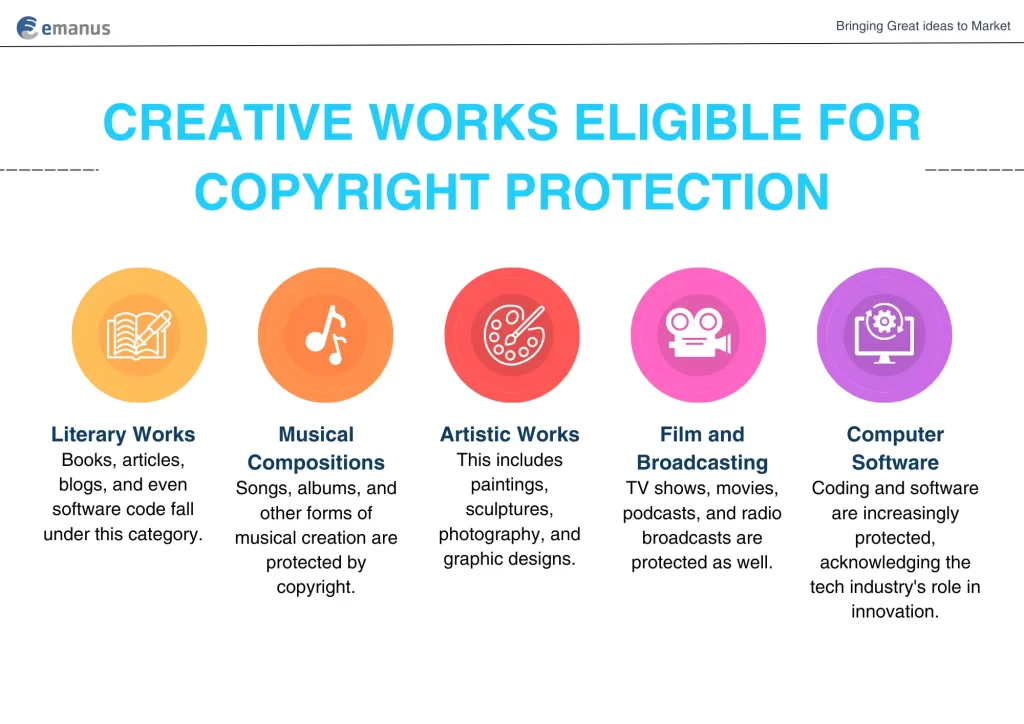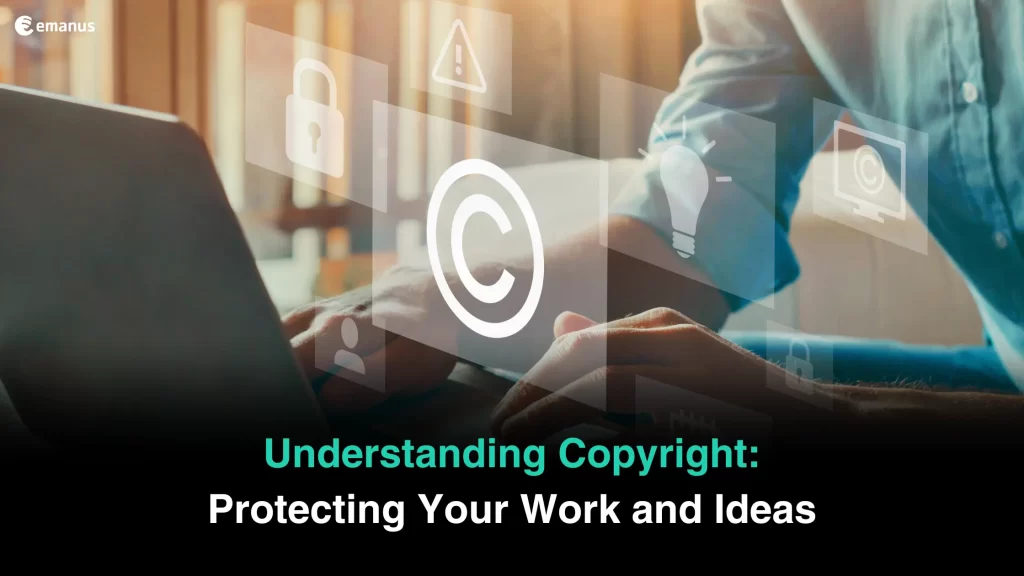As a small business owner, budding entrepreneur, or established company, you continuously develop unique content, products, and designs. Protecting these original creations is crucial to ensure others don’t use or replicate them without your consent.
This is where copyright comes into play. In this blog, we’ll explore what copyright is? Why is it important?, and how it benefits both creators and businesses.
What is Copyright?
At its core, copyright is a legal framework that grants creators exclusive rights over their original works. These works can span across various categories, including literary, musical, artistic, and even digital creations such as software and websites.
In the UK, copyright is governed by the Copyright, Designs and Patents Act 1988 (CDPA), which outlines the protections provided and the rules creators must follow to ensure their work is safeguarded.
Why Is Copyright Important?
Copyright plays a crucial role in fostering creativity and innovation. For creators, it offers peace of mind, knowing that their hard work won’t be used without permission or proper compensation.
Imagine pouring time and effort into developing a product or writing a book, only for someone else to claim it as their own. Copyright prevents this from happening, empowering creators to control how their work is used and distributed.
For businesses, copyright protection is invaluable. It safeguards your branding elements, logos, software, and other creative assets, ensuring that competitors or other parties can’t use them without your consent.
Copyright is not just a legal formality; it’s a tool for economic growth, allowing creators and businesses to monetize their work and foster innovation within their industry.
Benefits of Copyright Protection
Benefits of copyright are enlisted below:
1. Exclusive Rights: Copyright grants creators the exclusive right to reproduce, distribute, and display their work, which ensures that only the owner can control how it is used.
2. Financial Rewards: Creators can monetize their work through licensing agreements, where others pay for the right to use it. This is particularly important in industries like music, publishing, and technology.
3. Legal Protection: In cases of copyright infringement, creators can take legal action to seek damages or stop unauthorized use.
4. Long-Term Security: Copyright protection generally lasts for the creator’s lifetime plus an additional 70 years, meaning that creators (or their estates) can continue to benefit long after the work was originally made.
What Does Copyright Protect?
 Copyright is versatile and covers various types of creative work. Here are some examples of what can be protected:
Copyright is versatile and covers various types of creative work. Here are some examples of what can be protected:
- Literary Works: Books, articles, blogs, and even software code fall under this category.
- Musical Compositions: Songs, albums, and other forms of musical creation are protected by copyright.
- Artistic Works: This includes paintings, sculptures, photography, and graphic designs.
- Film and Broadcasting: TV shows, movies, podcasts, and radio broadcasts are protected as well.
- Computer Software: Coding and software are increasingly protected, acknowledging the tech industry’s role in innovation.
Why Are Copyright Laws and Regulations Important?
Copyright laws and regulations are designed to protect the rights of creators, prevent exploitation, and promote fair competition. These laws ensure that creators can reap the rewards of their work while also benefiting society by encouraging the free flow of ideas and creative output.
Without copyright protection, the creative industry—whether it’s books, music, films, or software—would struggle to thrive, as creators would have little incentive to innovate if their work could be freely copied.
Why is It Important to Follow Copyright License Rules?
Understanding and respecting copyright license rules is essential for businesses and individuals alike. Using copyrighted work without permission can result in legal penalties, financial loss, and reputational damage. Copyright licenses often specify how a work can be used, distributed, and altered. By following these rules, businesses can avoid costly infringement lawsuits and ensure that they’re acting ethically and responsibly.
Are Ideas Protected by Copyright?
One common misconception is that copyright protects ideas, but that’s not the case. Copyright only protects the specific expression of an idea, not the idea itself. For instance, if you come up with a new business idea or invention, copyright won’t protect that idea until it’s expressed in a tangible form, such as a written plan, product design, or prototype. So, if you’re asking, “Can you patent an idea without a prototype?”—the answer is no. Patents require a concrete form of the idea, such as a prototype or detailed description, for the protection process to begin.
Copyright Laws and Regulations: Key Considerations
In the United States, copyright protection is automatic once an original work is created and fixed in a tangible form, such as a written document, artwork, or digital file. While registration with the U.S. Copyright Office is not required for copyright protection, it can provide significant legal advantages, particularly in cases of infringement. Registered works allow creators to seek statutory damages and attorney’s fees in court.
Copyright infringement occurs when someone uses, reproduces, or distributes a work without the permission of the copyright holder. Penalties for infringement can be severe, ranging from financial damages to injunctions that prevent further unauthorized use, and in some cases, criminal charges.
For businesses, understanding and adhering to copyright laws is crucial to avoid unintentional infringement. For instance, using images, music, or content without proper licensing can result in legal consequences. Always verify that any materials you use in marketing, websites, or products are either owned by you or properly licensed to avoid potential liabilities.
How Long Does Copyright Protection Last?
In the United States, copyright protection generally lasts for the creator’s lifetime plus 70 years. For works created by multiple authors, copyright extends 70 years after the death of the last surviving author.
In cases where the work is created for hire, or it’s a corporate work, the copyright lasts for 95 years from the date of publication or 120 years from the date of creation, whichever is shorter.
This lengthy protection period allows creators and businesses to benefit from their work for an extended time, providing substantial economic and creative incentives. Unlike patents, which typically last for 20 years, copyright protection offers much longer-term security for intellectual property.
Conclusion
Copyright is a powerful tool that protects creators and businesses from the unauthorized use of their work. By understanding what copyright is?, why copyright is important?, and how it benefits both creators and consumers, you can better navigate the legal landscape of intellectual property.
Whether you’re creating music, writing a book, designing a website, or developing software, copyright ensures that your efforts are recognized, protected, and monetized.
Respecting copyright laws and following licensing rules not only protects you from legal trouble but also fosters a creative and innovative environment where creators can thrive. By safeguarding intellectual property, copyright helps businesses and individuals succeed in today’s competitive marketplace.
At Emanus LLC, we help you navigate the legal landscape, ensuring your business is protected and set up for success. If you have any questions or need assistance with your copyright matters, book a free 15-minute consultation with one of our expert intellectual property lawyers.
Here’s the link for your convenience: Free consultation for your IP protection






